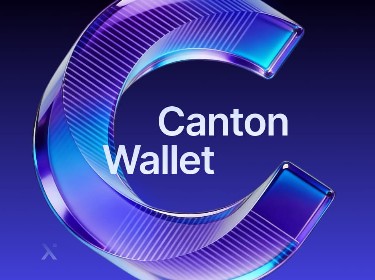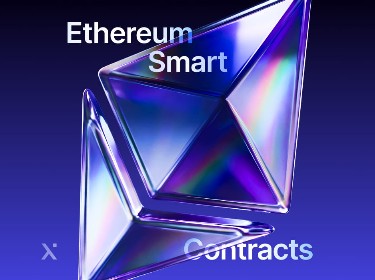Decentralized exchanges (DEXs) are among the most promising blockchain use cases. They open up opportunities to securely buy and sell cryptocurrency without the user having to hand over assets to a third party.
Cryptocurrency exchanges typically bring together buyers and sellers on a proven platform, granting them an opportunity to trade crypto for other assets, including digital and fiat currencies.
Until recently, cryptocurrency exchanges have been predominantly centralized, i.e. created and governed by a central authority. Yet, a new type of crypto exchange has now been introduced, and it has been advancing by leaps and bounds. And here we’re talking about decentralized exchanges (DEXs), which perform similar functions as centralized ones but are free from middlemen.
DEXs have taken the crypto world by storm. As of May 2021, the DEX Trading Volume passed $172 billion, largely due to the Uniswap decentralized exchange, which has already become almost a household name.
Based on these statistics, it’s safe to say that DEXs will continue gaining traction and impressing us with their development. But what are they, and how do they function?
Read on to find out more about decentralized exchanges, how a centralized cryptocurrency exchange development company work, their pros and cons, and discover how they differ from centralized exchanges.
Insights into centralized exchanges
Centralized cryptocurrency exchanges (CEXs) have been around since the launch of Bitcoin in 2009. They have come a long way and continue to play a pivotal role in the acceptance of crypto by businesses, institutions, and governments all over the world.
A centralized cryptocurrency exchange is a platform where you can buy and sell digital assets under the control of a third party, which is responsible for monitoring transactions and securing the assets being traded.
As a rule, users of centralized exchanges don’t own private keys to their funds. This means that when you decide to withdraw your funds, you’re required to ask the exchange to sign a transaction on your behalf. What’s more, when trading assets all the transactions are conducted via special mechanisms provided and approved by a central authority.
Also noteworthy is that CEXs usually facilitate trades between users by maintaining an order book — a special collection of buy and sell orders that are posted by individual traders. Orders, for their part, are referred to as requests to either buy or sell a particular amount of a certain cryptocurrency at a settled price. Centralized exchanges then aggregate orders from users and deploy special software that helps them match and carry out the corresponding buy and sell orders.
In spite of the introduction of decentralized exchange development, the centralized type is still highly popular among cryptocurrency users, and there are plenty of such platforms on the market, with the most popular being Binance, Coinbase, and LocalBitcoins.
Check out this highly secure cryptocurrency exchange for professional traders with over 20 customizable modules
Delving into decentralized exchanges
It’s important to note that decentralized exchanges perform the same function as centralized ones, the difference being that they’re based on the core principle of disintermediation. A DEX is primarily a peer-to-peer marketplace that aims to establish direct connections between buyers and sellers.
Naturally, decentralized platforms are non-custodial, which means that a user holds total responsibility for managing their wallets alongside private keys. The central authority is substituted by elaborate smart contracts — self-executing, blockchain-based business automation applications. They run when predefined conditions are met and consistently record each and every transaction on the blockchain.
Centralized vs decentralized exchanges: drawing distinctions between the two
| Decentralized exchanges | Centralized exchanges | |
| Security | Very secure (almost no risk of getting hacked) | Not immune to hacking |
| Control | Users have total control over their accounts | Third party that runs the exchange has most of the control over users’ accounts |
| Fees | No or low fees | Always charge fees for their services (fees differ from provider to provider) |
| Liquidity | Relatively low liquidity | High liquidity |
| Speed | Lower transaction speed | Higher transaction speed |
The presence/absence of intermediaries is not the only criterion that is taken into account when comparing decentralized and centralized exchanges. You need to consider other key factors such as security, control, fees, liquidity, and speed.
Without any further ado, let’s go ahead and find out how centralized and decentralized exchanges differ from each other and which one has more advantages.
Security
Compared to centralized exchanges, decentralized ones are generally more secure and reliable — there is almost no risk of getting hacked.
Centralized exchanges, for their part, have experienced several hacking attacks, forcing them to put a great deal of effort into blocking these activities or dealing with the fallout. As a result, some of them are now offering their customers more reliable, decentralized accounts.
Control
If you decide to opt for centralized crypto exchange, bear in mind that the third party that runs the exchange will hold most of the control over your account.
With a decentralized crypto exchange, however, you’re the boss: your DEX account belongs only to you. For anyone seeking to get rid of the third parties involved in transaction processes, this factor can turn out to be highly profitable. Yet it’s important to stress that the presence of intermediaries can in certain ways be beneficial. Since the people who run CEXs are targeting profits, they’re more client-focused and their support teams normally try to address any issues straight away.
Fees
Typically, DEXs have either zero or minimal charges for matching orders on the blockchain, which puts them at an advantage and makes them more popular among crypto traders.
Centralized platforms — their providers, to be exact — charge users for their services. The prices differ from provider to provider and depend on the number of features that they offer.
Liquidity
In terms of liquidity, DEXs are put in the shade by their centralized counterparts. In fact, despite the anonymity afforded by DEXs, a large number of users still give their priority to CEXs for the higher liquidity that they provide.
Take a look at this article to find out more about liquidity mining
Speed
Decentralized exchanges tend to be slower. According to the order speed analysis, centralized exchanges are able to execute orders within approximately 10 seconds, while for DEXs it takes about 15 seconds to both match and fill an order. In some cases, a decentralized exchange may require about one minute to execute an order, which is surely a long period of time compared to CEXs.
However, given that DEXs are evolving and their developers wish to ensure their wider adoption, they will soon catch up with CEXs in terms of transaction speed or even manage to outperform them.
As you can see, both exchange types have their strengths and weaknesses. By identifying what you personally are looking for in an exchange, and which elements tend to be most important for carrying out your trades effectively, you’ll be able to make the right decision.
Digging deeper: how do decentralized exchanges work?
![]()
It’s important to know that a decentralized crypto exchange relies heavily on smart contracts. These enable trading between individuals without actually taking control of their coins.
In addition, there exist three different types of decentralized exchanges with different operating principles: on-chain order books, off-chain order books, and automated market makers (AMM). Let’s go into the details of each of them.
On-chain order books
Some decentralized platforms allow for the processing of all operations on-chain, including altering and canceling orders. On-chain order books are widely seen as the most decentralized and transparent version because they enable users to bypass intermediaries.
Yet, for every plus, there is a minus. The on-chain approach is not so practical in its execution. Decentralized exchanges are required to undergo a lengthy process of getting permission from every node on the network to record the order on the blockchain forever, and they have to pay a fee for it. As a user, you also need to wait till the miner adds your request to the blockchain, which can be cumbersome too.
At present, the best-known decentralized platforms using on-chain order books include the likes of Bitshares and StellarTerm.
Off-chain order books
In comparison with on-chain order books, transaction records in off-chain order books are kept in a centralized entity. They resort to so-called “relayers” that help govern these order books.
Decentralized exchanges that use off-chain order books in their work are only partially decentralized. Therefore, given that orders are not stored on-chain, this approach may run into some of the security issues endemic in centralized exchanges and put the data at risk. At the same time, using off-chain order books is not as lengthy and expensive as on-chain ones.
Examples of DEXs running on off-chain order books include Binance and EtherDelta.
Automated market makers (AMMs)
An automated money maker has the capacity to upend order books with pricing algorithms that are able to automatically price any asset pairing online (for example, Bitcoin-US dollar).
AMMs decentralize the entire process and empower users to establish a market on the blockchain. They don’t need to bring on board any counterparty to conduct a trade. Instead, they interact with a blockchain with the purpose of creating a market.
With automated market makers, users don’t need to resort to order books. They instead use smart contract development services that allow them to create liquidity pools, which can automatically carry out trades according to particular parameters.
AMMs gained a lot of prominence in 2020, driving a fair share of the DeFi boom. These days, the most popular DEX platforms using AMMs are Uniswap, SushiSwap, and Kyber Network.
Check out OTC Hawk: our wealth and portfolio management app that focuses on dealing with pain points around crypto trading
Looking into the advantages of decentralized exchanges
![]()
Though decentralized exchanges emerged later than their counterparts, they have already won widespread popularity and drawn the attention of a number of crypto traders globally. They offer substantial benefits such as complete control and sovereignty, total privacy, and the opportunity to trade all tokens. Below, we will consider each advantage in detail.
Complete control and sovereignty
As decentralized exchanges are non-custodial, they provide users with full control of their funds and private keys. All trades conducted on decentralized platforms self-execute via the advanced smart contract mechanisms.
The distributed architecture that lies at the core of DEXs protects them from any interference from either local or international authorities. Therefore, all transactions are carried out within a secure and transparent system, excluding intermediaries.
Total privacy
Decentralized exchanges also enable users to maintain a remarkable degree of anonymity, thanks to the absence of Know Your Customer (KYC) rules and regulations. This means that users don’t have to provide any personal data or specify their email address; nor do they have to undergo identity verification.
The services based on a distributed registry are regarded as more anonymous and secure than those exchanges involving personal authentication for KYC and AML compliance.
Unique opportunity to trade all tokens
Generally, centralized exchanges can support only the most well-known cryptos, thus making less popular tokens more difficult to trade. But by turning to decentralized exchanges, users can smoothly trade both new and obscure cryptocurrencies that were previously almost impossible to exchange elsewhere.
As well as this, DEXs make it possible to launch new cryptocurrencies directly in the system. Thanks to this extraordinary opportunity, different startup projects manage to gain liquidity without having to pay exorbitant fees for their placement on major platforms.
Take a peek at this multi-currency mobile crypto wallet with ERC-20 token support and smart contract builder
Considering the disadvantages of decentralized exchanges
In spite of some unique pros, decentralized exchanges still come with several drawbacks. These include lack of liquidity, inability to restore access, and usability issues.
Lack of liquidity
Lack of liquidity remains a pressing issue for decentralized exchanges. Any exchange badly needs a high degree of liquidity in order to function properly and effectively.
Compared to centralized exchanges, decentralized ones attract lower liquidity, since many users find it fairly complicated to carry out their trades on DEXs, which are relatively new and in certain ways too sophisticated. Moreover, decentralized exchanges support multiple trading pairs, which also hampers market liquidity.
Still, with the growth of decentralized finance (DeFi), the liquidity issue has been gradually fading away, so it’s widely expected that soon DEXs will boast the same level of liquidity as CEXs.
Usability issues
For those who aren’t aware of the functioning principles of blockchain technology, it might be challenging to get used to working with DEXs. Centralized exchanges in this respect are more user-friendly and easier to navigate.
As a result, DEXs have been held back in their struggle to gain wider adoption, and it also explains why they get overlooked in favor of their centralized counterparts that are not so complex to operate.
Inability to restore access and absence of support service
The absence of KYC regulations is a two-edged sword. When combined with the inability to cancel a transaction in the case of the loss of a private key, for instance, it may lead to unpleasant consequences: a user might not be able to recover their data or not even have their assets returned to them on request.
What’s more, if they don’t have a support service, a user will be left to tackle all the arising issues by themselves. That’s why it’s advisable to be on constant alert against the risk of losing a private key or sending a wrong transaction.
What you should look for in a decentralized exchange
To ensure a positive experience from working with a decentralized exchange, it’s advisable to give a good deal of thought to criteria such as the DEX’s scalability, affordability, number of users, transaction speed, and user interface.
Let’s address each point and see why it needs attention.
Decent scalability capacity
Some DEXs apparently experience scalability issues when dealing with high trading volumes.
To prevent this from happening, a decentralized exchange must have the right technology to be able to successfully handle all transactions, without slowing down or interrupting operations.
Relative affordability
A decentralized exchange should aim to welcome a wide range of investors and make itself affordable to them. In this respect, there should be a balance between providing sustainable transaction fees and generating sufficient income for sustaining all operations taking place on the exchange platform.
Sufficient number of users
To do away with any price manipulations on the platform, a DEX is required to have a reasonable number of buyers and sellers who will also be responsible for providing high liquidity within the exchange.
Fast transaction speed
It’s hard to argue with the expression “time is money” since markets sometimes experience changes in asset prices within seconds. That is why traders will be better off if they are able to place transactions and get them executed within the shortest possible time.
User-friendly interface
Although it’s almost impossible to cater to the likes of all users and consider all their preferences regarding interface design, any DEX should be easy to use and allow all traders to conduct their transactions with minimal or no complications.
Introduce yourself to this UTXO-based blockchain platform with decentralized governance and smart contract support
Overview of the most popular decentralized exchanges
Undoubtedly, it’s extremely hard to find an ideal decentralized exchange that would correspond to all your requirements. The good news, though, is that DEXs are becoming increasingly popular and progressing at lightning speed. Very likely, one day we will see a truly perfect DEX (or almost perfect, anyway).
For now, let’s check out the most widely-used Ethereum decentralized exchanges and find out more about their attributes.
Uniswap
Uniswap is justly considered to be the most prominent decentralized cryptocurrency exchange to this date. Launched in 2018, this DEX was built on the Ethereum blockchain, which allows for the platform’s compatibility with every ERC-20 token as well as infrastructure services such as MetaMask and MyEtherWallet.
Uniswap is totally open source, which means that everyone has access to the code and can copy it to set up their own decentralized exchange. In addition, it encourages users to list tokens on the exchange absolutely free of charge.
Given that Uniswap is fully decentralized, users can assume complete control over their funds and private keys. This eliminates the risk of losing their assets if the exchange gets hacked.
According to the latest statistics, Uniswap is the fifth-largest decentralized finance platform and as of writing, it has over $6,09 billion of total value locked.
It’s also worth noting that Uniswap has its own native/governance token called UNI. It grants its holders the right to vote on new changes as well as developments within the entire platform. For example, token holders can decide how minted tokens will be distributed between the community members and developers, as well as what changes should be made to fee structures.
SushiSwap
![]()
SushiSwap is an Ethereum-based decentralized exchange platform that is equipped with custom automated money maker (AMM) smart contracts.
This DEX, which grew out of Uniswap, relies on a collection of liquidity pools that facilitate its proper functioning and empower crypto traders to achieve their aims without involving any central operating administrators.
All decisions related to the SushiSwap software can be proposed and implemented by the holders of the platform’s native token, called SUSHI. Anyone who holds a balance of the asset has the right to propose changes to how SushiSwap operates as well as vote on submitted proposals by other users.
1inch
1inch functions as a decentralized exchange and an aggregator. Instead of working as a common exchange, 1inch splits all orders among several other decentralized exchanges and private liquidity providers and aims to find the best possible exchange rates.
The protocol that lies at the core of 1inch helps connect both decentralized and centralized platforms so as to reduce price slippage and benefit all parties involved. Besides swaps, the platform offers a host of features. Users have the ability to trade via limit orders, deposit their funds into special lending protocols, and transfer coins between various liquidity pools.
Curve Finance
Curve Finance is a decentralized exchange that runs on the Ethereum blockchain, facilitated by an automated money maker mechanism and liquidity pools. It has been specifically designed for swapping between different stablecoins with low fees and slippage.
Apart from swapping stablecoins, Curve’s users are also rewarded for providing liquidity to the exchange. The liquidity pools mean there’s no need to match a buyer with a seller in order to carry out a transaction. Users simply trade in and out of a pre-funded token pool: this leads to a more efficient transaction.
The Curve protocol also has its native utility token — CRV — which has four key use cases: governance, LP rewards, generating yields, and token burns.
Balancer
Balancer is a popular decentralized exchange platform with the Ethereum blockchain at its core. It is widely regarded as a pleasingly convenient alternative to centralized exchanges since it enables its users to trade Ether and ERC-20 assets in an entirely secure, permissionless environment.
Balancer lets users trade supported tokens against one another, set up liquidity pools to add more liquidity to the Balancer protocol, and even invest in the existing pools so as to generate yield from trades.
What’s more, just like other current DeFi apps, Balancer has its own native utility token BAL, which is used for taking part in the management of the Balancer Protocol and can be earned by granting liquidity or conducting trades on the platform.
Closing thoughts
It’s merely a matter of time before decentralized exchanges make their mark on the entire financial world and get adopted even outside the crypto space. They are undoubtedly gathering pace and will in all probability keep up the momentum in the foreseeable future.
The overall, ground-breaking concept of decentralization has appealed to a wide range of crypto enthusiasts who appreciate not needing to trust their funds and private keys to a third party.
Quite a number of DEXs have emerged over the recent years, with every new exchange proving more advanced and sophisticated, addressing the drawbacks of its previous counterparts.
Yet it’s fair to say that these platforms are still in their infancy. If wider take-up is to be guaranteed, it’s vital that the entire infrastructure develops further, refining aspects such as user experience, scalability mechanisms, and transaction speed. The good news is that decentralized exchange platforms look set to keep evolving to match the requirements and ambitions of their users.
If you’ve set your sights on a DEX and wish to create your own from scratch, it’s highly advisable to reach out to a seasoned cryptocurrency exchange development company with a proven record of successfully delivered projects. They will take care of the entire development cycle and help you make serious headway in your field.




